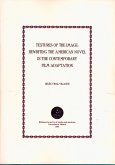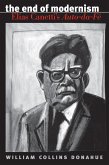The "e;margins"e; in Petra Fachinger's work are occupied largely by second-generation migrant writers from Spain, Italy, and Turkey, German Jewish writers of diverse ethnic origins, and writers born in the GDR. She demonstrates that during the 1980s and 1990s writers from various cultural backgrounds engaged in oppositional discourse to construct their own version of Germany and write back to the German canon. While most studies of texts by minority writers in Germany favour content over form, Fachinger focuses on identifying counter-discursive strategies, and applies postcolonial theory concerned with textual resistance to the German situation. In doing so, this study effectively relates marginal writing in Germany to similar forms of writing in other national and cultural contexts. The oppositional impulse, whether manifested in counter-canonical discourse, postcolonial picaresque, hybridity, rewriting of genre, or grotesque realism, is prompted by the exclusionary politics of the dominant culture. The discursive strategies used by the authors discussed to rewrite Germany expose the assumptions that underlie German public discourse and destabilize notions of Germanness, Jewishness, and Turkishness. Fachinger's reading of texts by marginal writers in Germany, all of whom endeavour to resist marginalization while simultaneously experiencing or even celebrating the margin as a site of empowerment, was motivated by the absence of comparative studies of such writing. Rewriting Germany from the Margins demonstrates the necessity and usefulness of comparative approaches to minority discourses across national and cultural borders.
Dieser Download kann aus rechtlichen Gründen nur mit Rechnungsadresse in A, B, BG, CY, CZ, D, DK, EW, E, FIN, F, GR, HR, H, IRL, I, LT, L, LR, M, NL, PL, P, R, S, SLO, SK ausgeliefert werden.









